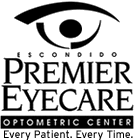If you are experiencing red eyes, itchy eyes or watery eyes you may be suffering from spring eye allergies. For some, March begins pollen season, which means uncomfortable symptoms such as red eyes, itchy eyes, stinging, burning and watery eyes. Spring eye allergies are largely due to an influx of tree and flower pollen into the air and can greatly inhibit quality of life for those that suffer from them.
What can you do to defend your eyes this allergy season? If at all feasible, try to reduce contact with allergens which means remaining indoors, particularly when the pollen count is high. Closing windows, using air conditioning and putting on wrap-around shades when going outside may also help to reduce exposure to allergens in the atmosphere. A HEPA (high efficiency particulate air) filter can be used clear allergens from the air inside your home or office.
However, for those of us that can't stay indoors the entire spring season, there are medications that can treat symptoms such as red eyes, watery eyes or itchy eyes. Often times a simple over-the-counter lubricating eye drop is all that's needed to moisturize and alleviate itchy eyes or red eyes and remove irritants. Medicines containing antihistamines, decongestants or mast cell stabilizers will allay redness and swelling of the eyes and treat other symptoms such as congestion and sneezing. Eye drops are sometimes recommended because they can work better than oral products to treat eye symptoms.
Contact lens wearers sometimes have worse symptoms from eye allergies because irritants tends to enter the eye and stick to the surface of the lens, triggering inflammation. Further, oral antihistamines can dry out the eyes, worsening the situation. Contact lens wearers should take measures to ensure eyes are moist and replace contacts as directed. Some optometrists prefer the use of daily disposable contacts, since replacing your contact lenses daily greatly diminishes the chances of buildup and inflammation.
When you are suffering from red, itchy eyes, don't rub them. Doing so can just exacerbate the inflammation. Because some of the effective medications do need a prescription, if over-the-counter medications do not help, book an appointment with your optometrist.


*Closed daily for lunch between 1pm to 2pm